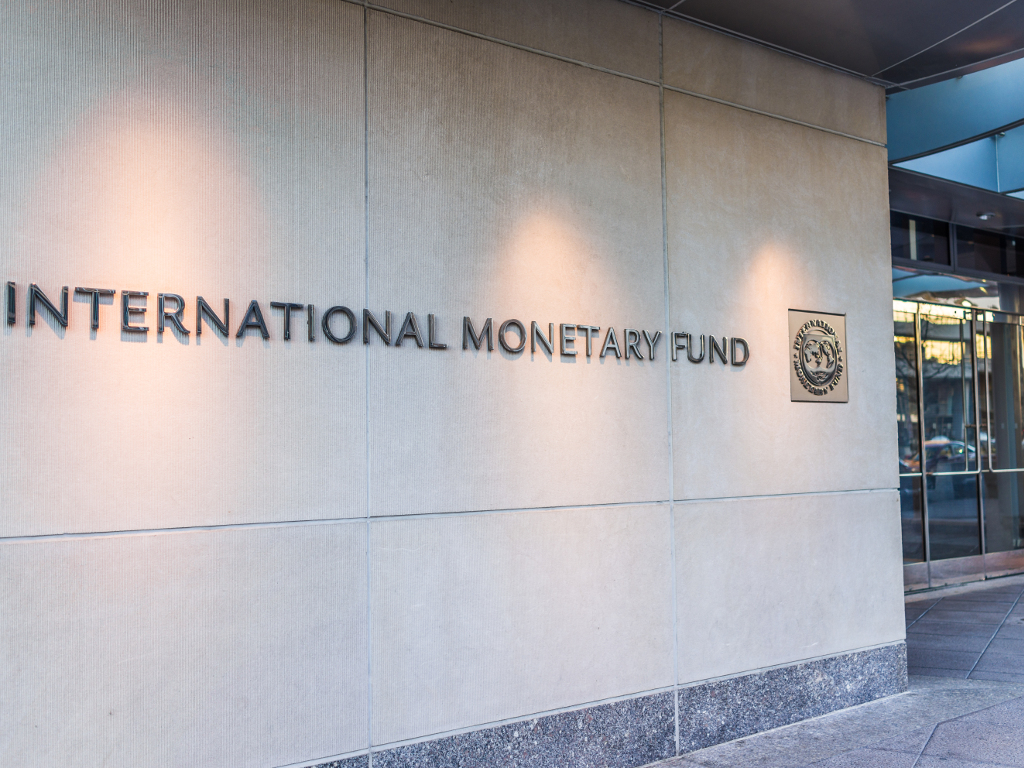IMF successfully completes eighth review of Serbia’s stand-by arrangement
Source: eKapija
 Thursday, 21.12.2017.
Thursday, 21.12.2017.
 13:30
13:30
 Thursday, 21.12.2017.
Thursday, 21.12.2017.
 13:30
13:30
(Photo: Kristi Blokhin/shutterstock.com)

As said in a press release by the National Bank of Serbia (NBS), during the arrangement that will expire on February 22, 2018, the Republic of Serbia did not use the available funds.
In its meeting the Executive Board assessed that Serbia has made significant progress under the agreed economic program. Market confidence has improved, investment and growth are stronger. The IMF applauded the improvement of labor market conditions, inflation moving close to the target midpoint, accelerated public debt decrease and strong external position of the country. Significant progress has also been recorded in the structural reform agenda, but it was also pointed out that deeper institutional reforms in this area are required to secure sustainable economic growth.
As regards fiscal policy, it has been emphasized that significant fiscal adjustment has placed public debt on a downward trajectory and that the 2018 Law on Budget provided space for capital investment and for some further employment-friendly tax reductions. Continuation of reforms will improve public administration and contribute to the more efficient delivery of public services.
The IMF assessed that monetary policy has succeeded in keeping inflation under firm control and is supporting the economic recovery. Qualifying the approach to monetary policy as appropriate in light of domestic and external uncertainties, the IMF welcomed the exchange rate flexibility demonstrated recently, with appreciation reflecting Serbia’s improved macroeconomic fundamentals and market conditions, the press release by the NBS adds.
Financial sector reforms have strengthened the banking sector, and put it in a much better position to support the economy. The IMF commended very good results of NPL Strategy implementation, stressing the need to continue these efforts.
The significant progress with structural reforms has strengthened Serbia’s growth potential, reduced fiscal risks and brought about job creation. The IMF suggests that substantial work remains to be done in regard to the remaining state-owned enterprises in order to improve their governance and management, investment and administrative capacity. It has been noted that Serbia’s business environment has improved in conditions of both macroeconomic stability and a better regulatory environment. Tax reform continuation is suggested as well as addressing the uncertainty in the judicial system in order to further spur business activity.
The IMF Executive Board concluded that the approaching completion of the program will mark a successful macroeconomic adjustment and a significant strengthening of Serbia’s economic capacity as a result of the agreed economic agenda implementation, the NBS press release adds.
Companies:
 Međunarodni monetarni fond-MMF Beograd
Međunarodni monetarni fond-MMF Beograd
 Narodna banka Srbije Beograd
Narodna banka Srbije Beograd
 Ministarstvo finansija Republike Srbije
Ministarstvo finansija Republike Srbije
 Vlada Republike Srbije
Vlada Republike Srbije
Tags:
NBS
eighth review of IMF arrangement
IMF arrangement
growth of investments
public debt
inflation in Serbia
reduction of public debt
fiscal policy
monetary policy
fiscal adjustment
Law on Budget
tax reductions
public administration
foreign exchange rate
exchange rate
dinar exchange rate
dinar appreciation
non performing loans
NPLs
state companies
public companies
restructuring public companies
Comments
Your comment
Most Important News
Full information is available only to commercial users-subscribers and it is necessary to log in.
Follow the news, tenders, grants, legal regulations and reports on our portal.
Registracija na eKapiji vam omogućava pristup potpunim informacijama i dnevnom biltenu
Naš dnevni ekonomski bilten će stizati na vašu mejl adresu krajem svakog radnog dana. Bilteni su personalizovani prema interesovanjima svakog korisnika zasebno,
uz konsultacije sa našim ekspertima.


 Izdanje Srbija
Izdanje Srbija Serbische Ausgabe
Serbische Ausgabe Izdanje BiH
Izdanje BiH Izdanje Crna Gora
Izdanje Crna Gora


 News
News






